Abstract
A simple gas-liquid chromatographic procedure for analyzing ethanol, acetic acid, acetoin, and racemic and meso-2,3-butylene glycol in broth media is described. Overnight broth cultures were filtered or centrifuged, and the filtrate or supernatant was treated with formic acid to aid separation of volatile fatty acids. Samples were then directly analyzed by gas-liquid chromatography on a 20% Tween 80-Chromosorb W-AW column and propionic acid as an internal standard. A complete analysis took ca. 8 min. The method can be used to distinguish homofermentative from heterofermentative lactic acid bacteria based on the level of ethanol produced and citrate-utilizing from non-citrate-utilizing lactic acid bacteria based on the levels of acetic acid produced. The method also has potential in distinguishing other bacterial fermentations. Of the 13 species of lactic acid bacteria tested, Streptococcus lactis subsp. diacetylactis was the major producer of 2,3-butylene glycol (total range, 0.3 to 3.5 mM), and, except for strain DRC1, both the racemic and meso isomers were produced in approximately equal amounts.
Full text
PDF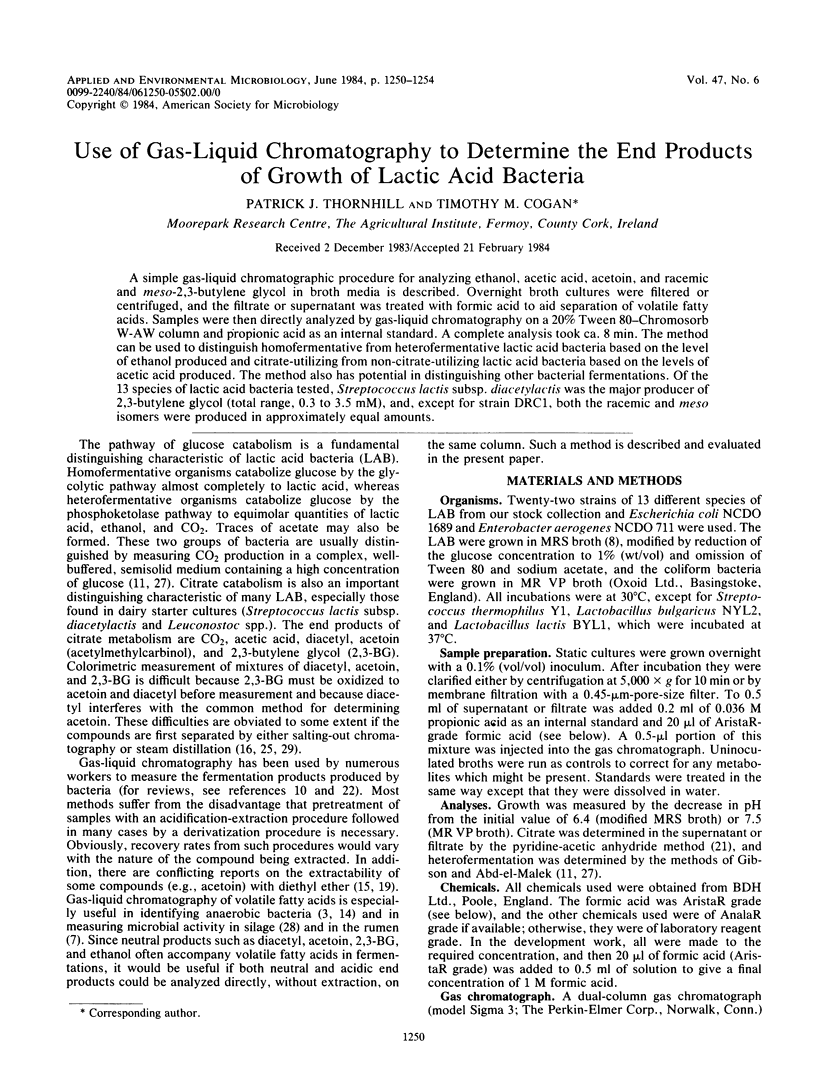
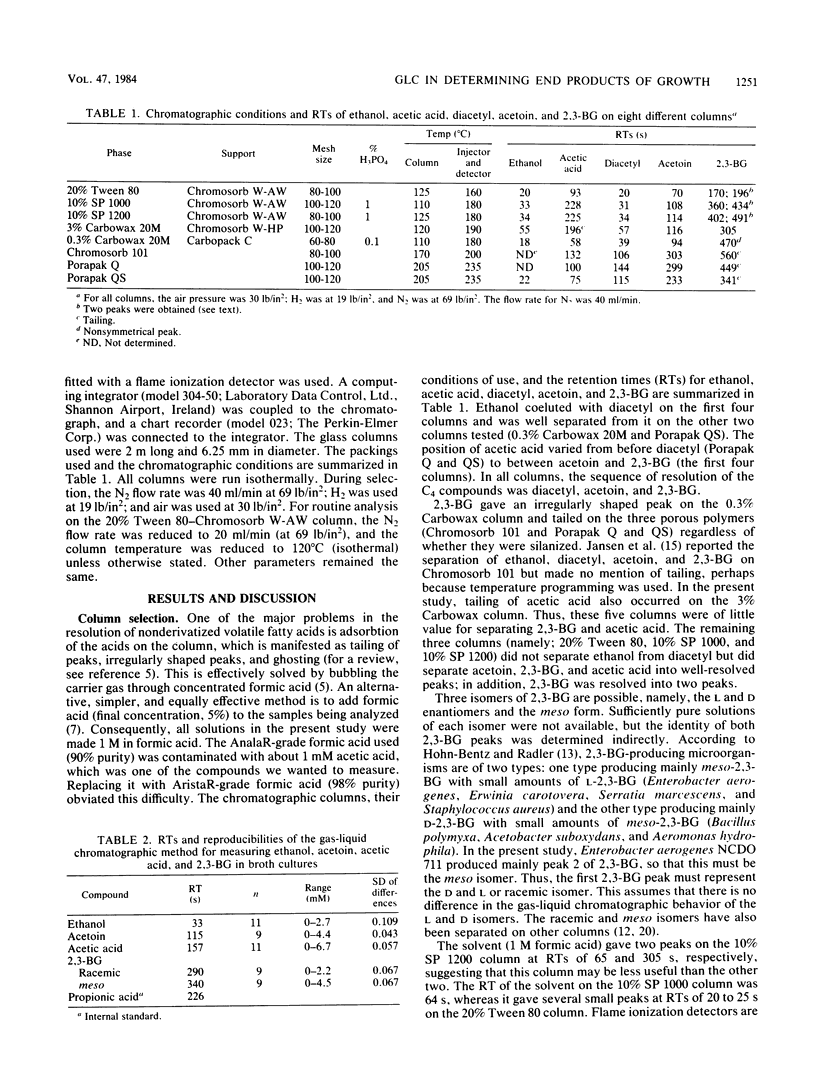
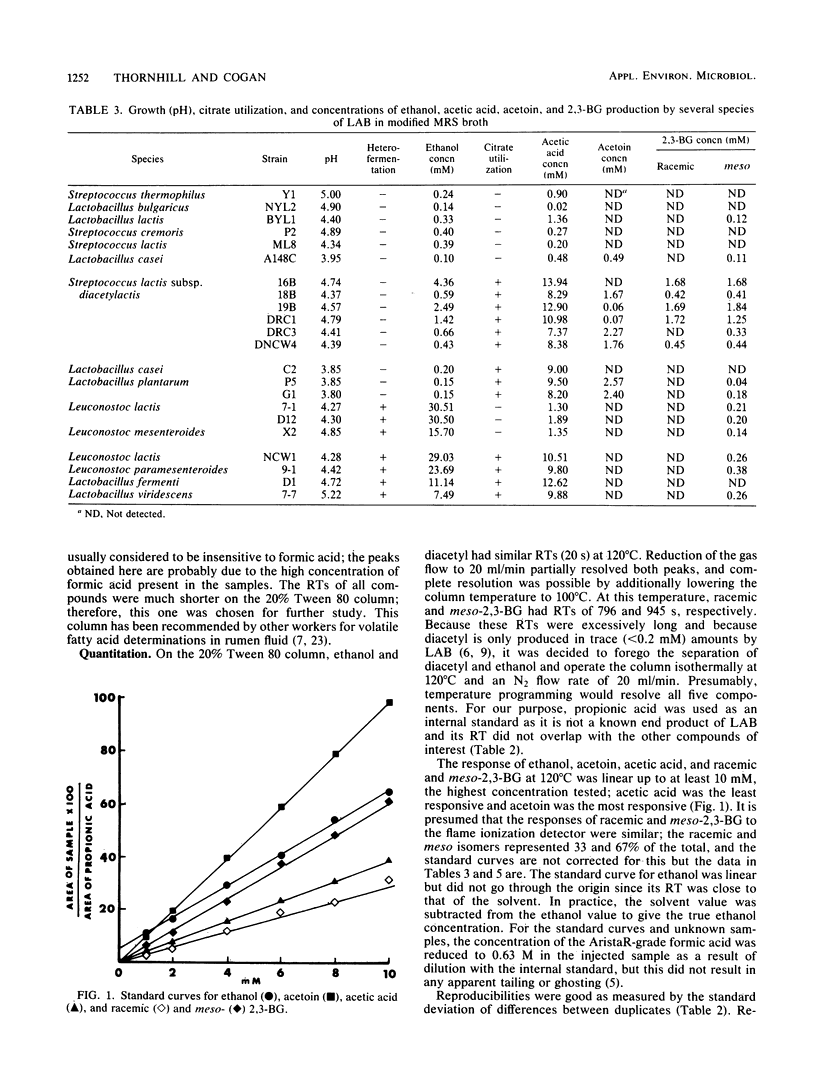
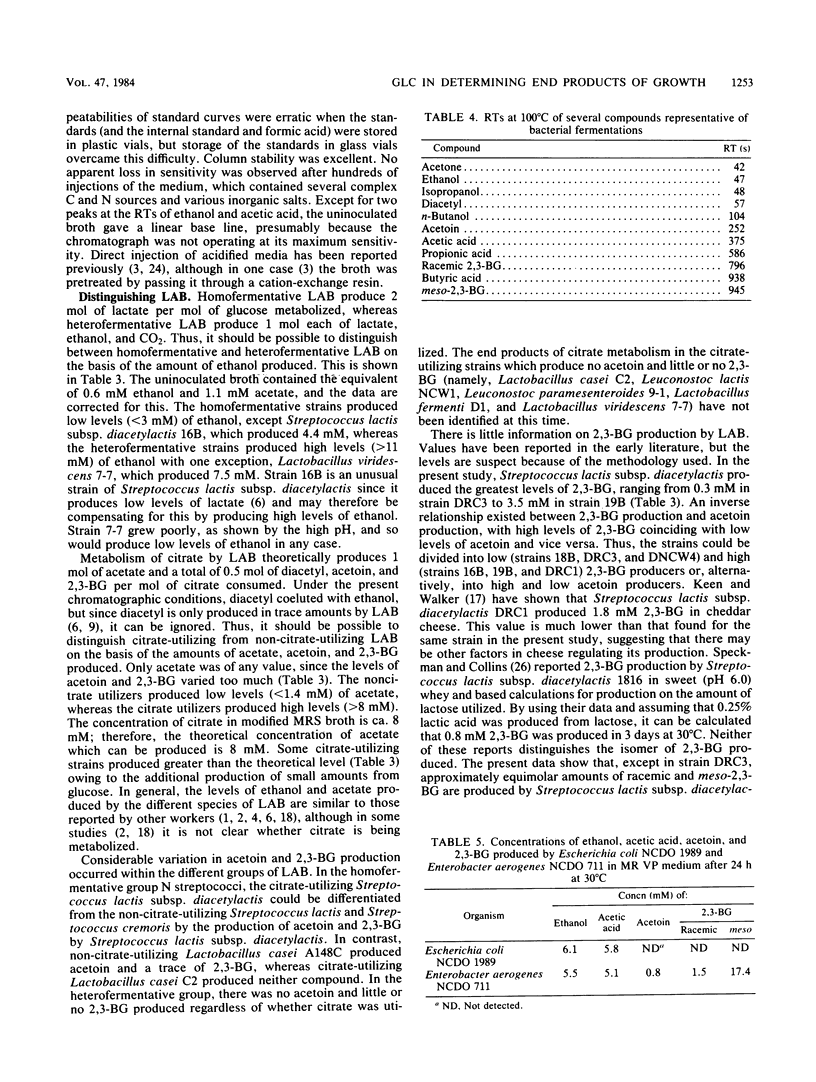
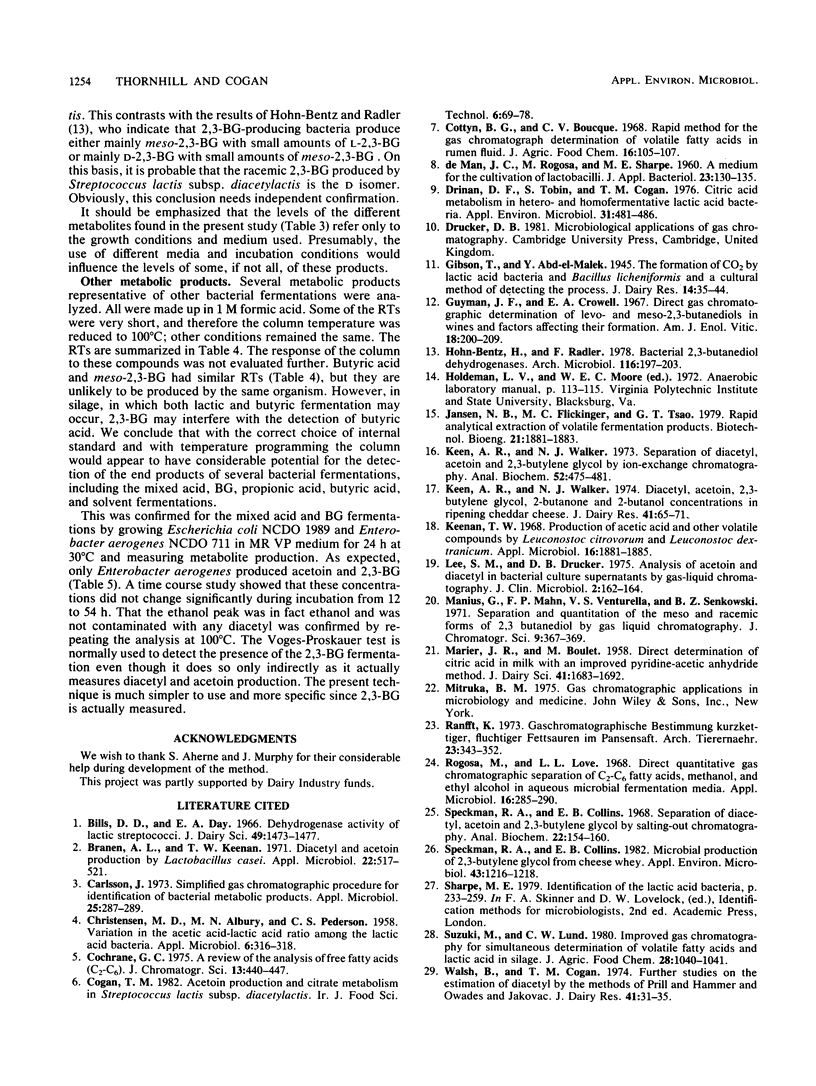
Selected References
These references are in PubMed. This may not be the complete list of references from this article.
- Bills D. D., Day E. A. Dehydrogenase activity of lactic streptococci. J Dairy Sci. 1966 Dec;49(12):1473–1477. doi: 10.3168/jds.S0022-0302(66)88120-1. [DOI] [PubMed] [Google Scholar]
- Branen A. L., Keenan T. W. Diacetyl and acetoin production by Lactobacillus casei. Appl Microbiol. 1971 Oct;22(4):517–521. doi: 10.1128/am.22.4.517-521.1971. [DOI] [PMC free article] [PubMed] [Google Scholar]
- CHRISTENSEN M. D., ALBURY M. N., PEDERSON C. S. Variation in the acetic acid-lactic acid ratio among the lactic acid bacteria. Appl Microbiol. 1958 Sep;6(5):316–318. doi: 10.1128/am.6.5.316-318.1958. [DOI] [PMC free article] [PubMed] [Google Scholar]
- Carlsson J. Simplified gas chromatographic procedure for identification of bacterial metabolic products. Appl Microbiol. 1973 Feb;25(2):287–289. doi: 10.1128/am.25.2.287-289.1973. [DOI] [PMC free article] [PubMed] [Google Scholar]
- Drinan D. F., Robin S., Cogan T. M. Citric acid metabolism in hetero- and homofermentative lactic acid bacteria. Appl Environ Microbiol. 1976 Apr;31(4):481–486. doi: 10.1128/aem.31.4.481-486.1976. [DOI] [PMC free article] [PubMed] [Google Scholar]
- Höhn-Bentz H., Radler F. Bacterial 2,3-butanediol dehydrogenases. Arch Microbiol. 1978 Feb;116(2):197–203. doi: 10.1007/BF00406037. [DOI] [PubMed] [Google Scholar]
- Keen A. R., Walker N. J. Separation of diacetyl, acetoin, and 2,3-butylene glycol by ion-exchange chromatography. Anal Biochem. 1973 Apr;52(2):475–481. doi: 10.1016/0003-2697(73)90051-1. [DOI] [PubMed] [Google Scholar]
- Keenan T. W. Production of acetic acid and other volatile compounds by Leucoostoc citrovorum and Leuconostoc dextranicum. Appl Microbiol. 1968 Dec;16(12):1881–1885. doi: 10.1128/am.16.12.1881-1885.1968. [DOI] [PMC free article] [PubMed] [Google Scholar]
- Lee S. M., Drucker D. B. Analysis of acetoin and diacetyl in bacterial culture supernatants by gas-liquid chromatography. J Clin Microbiol. 1975 Sep;2(3):162–164. doi: 10.1128/jcm.2.3.162-164.1975. [DOI] [PMC free article] [PubMed] [Google Scholar]
- Ranfft K. Gaschromatographische Bestimmung kurzkettiger, flüchtiger Fettsäuren im Pansensaft. Arch Tierernahr. 1973 Jul;23(5):343–352. doi: 10.1080/17450397309420984. [DOI] [PubMed] [Google Scholar]
- Rogosa M., Love L. L. Direct quantitative gas chromatographic separation of C2-C6 fatty acids, methanol, and ethyl alcohol in aqueous microbial fermentation media. Appl Microbiol. 1968 Feb;16(2):285–290. doi: 10.1128/am.16.2.285-290.1968. [DOI] [PMC free article] [PubMed] [Google Scholar]
- Speckman R. A., Collins E. B. Microbial production of 2,3-butylene glycol from cheese whey. Appl Environ Microbiol. 1982 May;43(5):1216–1218. doi: 10.1128/aem.43.5.1216-1218.1982. [DOI] [PMC free article] [PubMed] [Google Scholar]
- Speckman R. A., Collins E. B. Separation of diacetyl, acetoin, and 2,3-butylene glycol by salting-out chromatography. Anal Biochem. 1968 Jan;22(1):154–160. doi: 10.1016/0003-2697(68)90269-8. [DOI] [PubMed] [Google Scholar]


